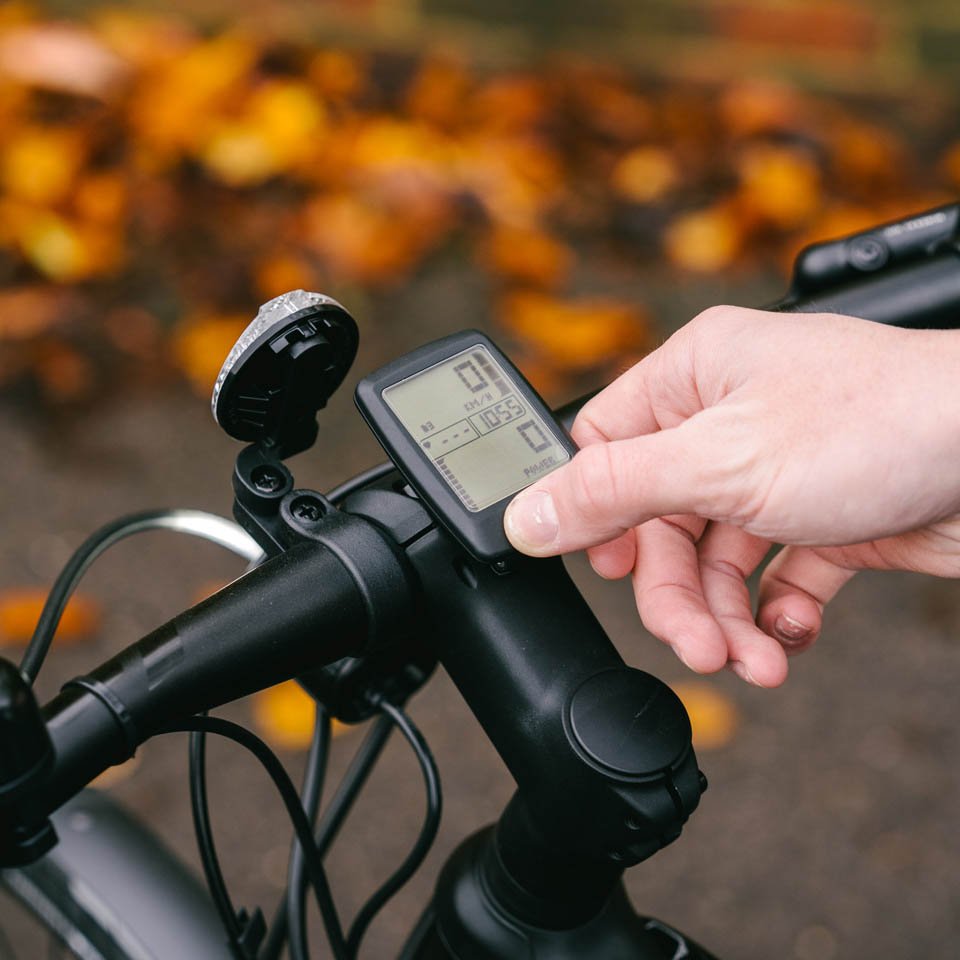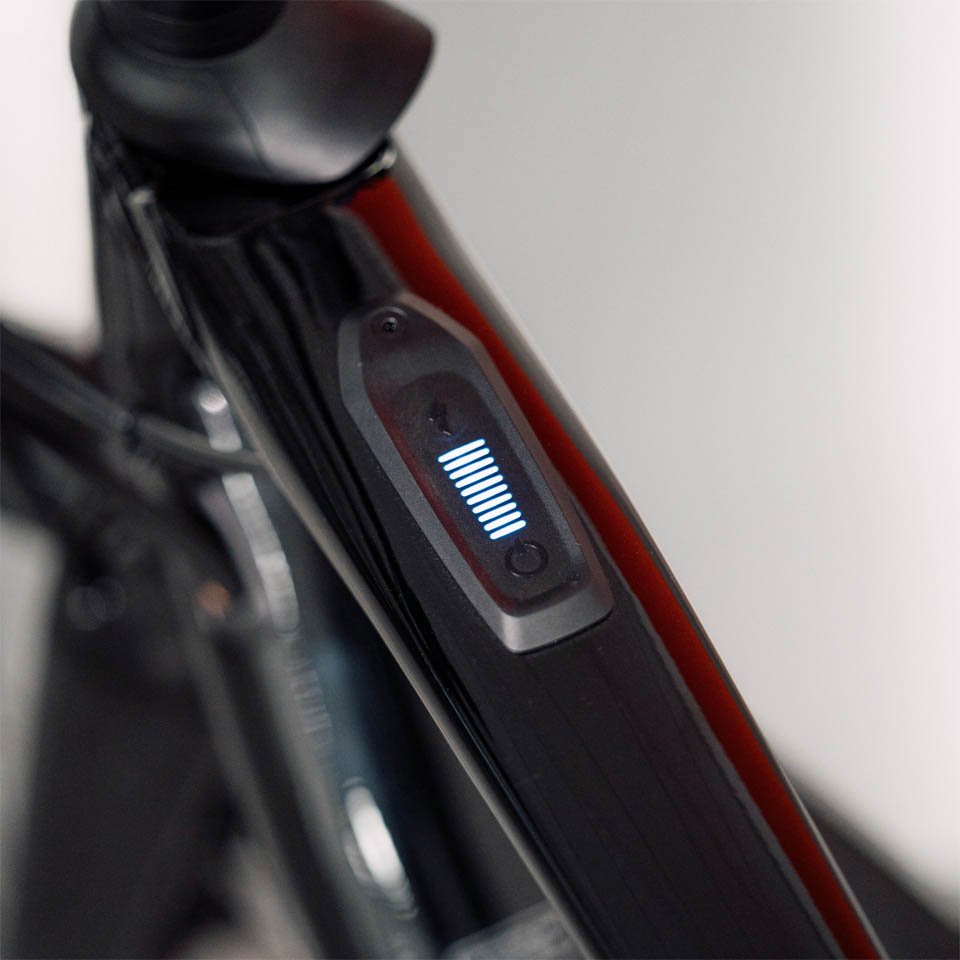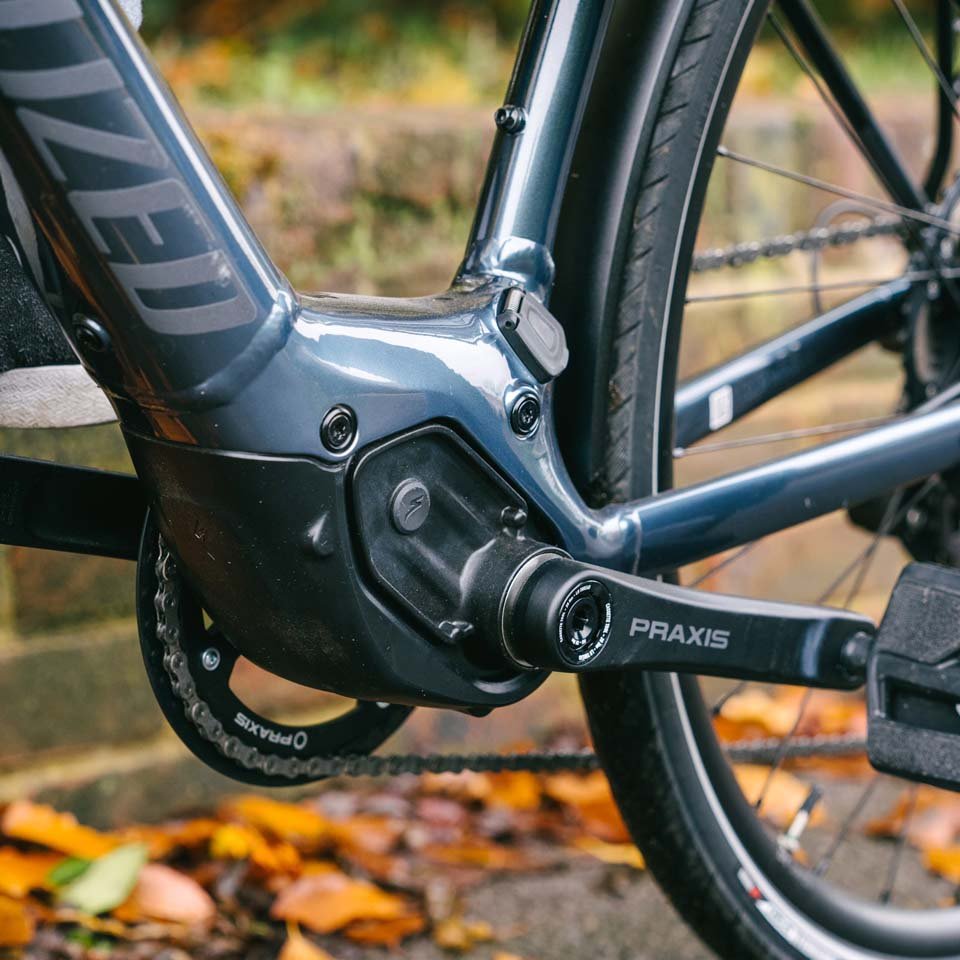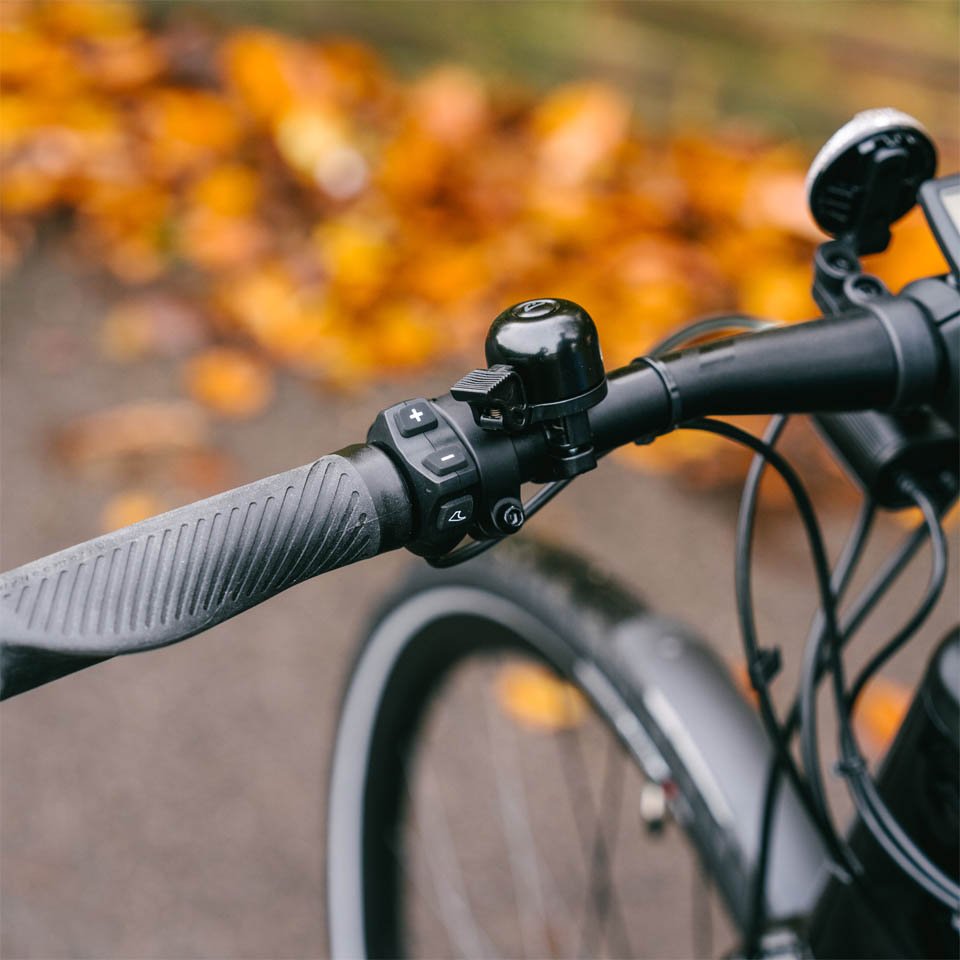Living with an Electric Bike: Charging and Maintenance
Electric bikes, sometimes known as e bikes, have evolved tremendously in regards to their performance and design over the last few years to make them a truly viable option across nearly all cycling genres and scenarios. Alongside their progression, more riders are looking to invest in an electric bike, and all tend to have similar questions in regards to their general, day to day upkeep.
In this article, we take a look at these most common queries around how to charge an e bike, how long it takes to charge an electric bike battery and more, to help give an insight into what it's like living with an electric bike.
Electric bike charging - how do you charge an e bike?
Electric bikes are easily charged via a standard internal wall socket at home, a wall outlet in the shed or garage or you can even plug in at work. When purchasing an electric bike, it will come supplied with a specific charging cable and charging pack. This charger is plugged into a wall socket and into the bike's battery so that charging can commence.
Some electric bikes have easily removable batteries so that the bike can be left outside while the battery charges inside.
How long does it take to charge an electric bike?
On average, electric bike batteries take between 2.5 to 6 hours to charge from flat. The exact amount of time a recharge takes depends on several factors, including:
The amount of charge remaining in the battery
The capacity of the battery
The efficiency of the charging unit
Some electric bikes are also compatible with fast chargers that can be bought aftermarket, that speed up the recharge time. Remember to consult the instructions from the manufacturer to take proper care of the battery and to maximise the lifespan.
How much does it cost to charge an electric bike?
The cost to fully charge an electric bike in the UK typically ranges from £0.05 to £0.20 per kilowatt-hour (kWh), depending on local electricity rates. These estimates are based on the average power consumption of electric bikes and the prevailing electricity prices. (Source: UK Energy Price Index)
You can give your bike a full charge for less if you avoid charging at peak times of the day.
Electric bike maintenance - do e bikes cost more to maintain and repair?
Most electric bikes shouldn't cost any more to maintain and repair than a non electric bicycle. The key difference when it comes to cost would be the price of the electricity needed to charge the battery. Essentially, the only differences between electric bikes and non electric bicycles are the inclusions of the motor and battery units. These units are robust, so should offer long-lasting, trouble-free use.
For the rest of the components, similar to those found on non electric bicycles, routine maintenance will be needed when required. Electric hybrid bikes are designed with reliability in mind, and often feature durable groupsets and robust wheels.
What is the range of an electric bike?
The range of an electric bike varies between around 20 miles and 130 miles (32km to 208km). The exact range offered is affected by the motor assistance level selected, the weight of the rider and the capacity of the battery. Environmental influences such as road conditions, elevation and weather can impact the range as well.
Despite this range variability, most electric bikes will have a display system that is easily viewable while riding, so that the battery level can be monitored and topped up before it runs flat. Some models such as electric gravel bikes offer additional range extenders, permitting longer rides on steeper gradients.
How heavy are electric bikes?
One very common question is are electric bikes considerably heavier? Electric bikes tend to be 5kg to 8kg heavier than a non electric bicycle that is designed for the same terrain. This weight gain is inevitable on account of a motor unit, a battery and a control unit being added. Despite this weight gain, most manufacturers integrate innovative design concepts to make the handling and riding sensations incredibly similar to non electric bikes.
Many models also have a “walk assist” mode that offsets their extra weight by helping the user push it when moving it around before or after a ride. Some electric mountain bikes are designed to be extra lightweight, delivering an experience more akin to a traditional non-electric bike.
Can I wash my electric bike?
Wondering how to clean an electric bike? E bikes can be washed in the same way as non electric bicycles. As with non electric bikes, the use of pressure washers and harsh degreasers should always be avoided to preserve the electric bike motor, e bike battery and all of the other components.
Generally speaking, a bucket of warm soapy water, a sponge and a rinse with a garden hose will give good cleaning results. Bike-friendly degreasers can be used on the chain cassette but care is still needed to avoid the motor, battery and any bearings.
Do I need to bring my electric bike inside to charge it?
An electric bike battery needs to be charged inside via an internal wall socket, but some electric bikes have removable batteries so can be left outside while charging is taking place. Other electric bikes have completely integrated batteries so will need to be brought inside when charging is needed.
Electric bikes that have removable batteries may have electrical contact points exposed once the battery is taken off. Seeing this, it's a good idea to shield these exposed areas if storing the electric bike outside while the battery is being charged indoors.
Do I need a specific electric bike car rack?
Electric bikes can be transported on car bike racks but because they are heavier than non electric bicycles the maximum carrying load of the rack needs to be checked, to ensure safety on the road. The carrying capacity of a rack can be found within its user manual or on the manufacturer's website. Care also needs to be taken when attaching an electric bike to a rack to make sure that any clamps or grips can't damage the battery or its wiring.
Ready for life with an electric bike?
If the idea of purchasing and riding an electric bike appeals, then why not browse through our considerable range? You'll be able to find the perfect model, frame size and battery capacity to meet the demands of your lifestyle. and
We have options available within all disciplines including road, mountain, and gravel to ensure that all electric bike preferences and requirements are catered for. Of course, commuter and leisure electric bikes are great for urban use too, and here is our guide to electric hybrid bikes and some guidance on e bike laws in the UK.
More questions about e bike basics? Check out our guide.











